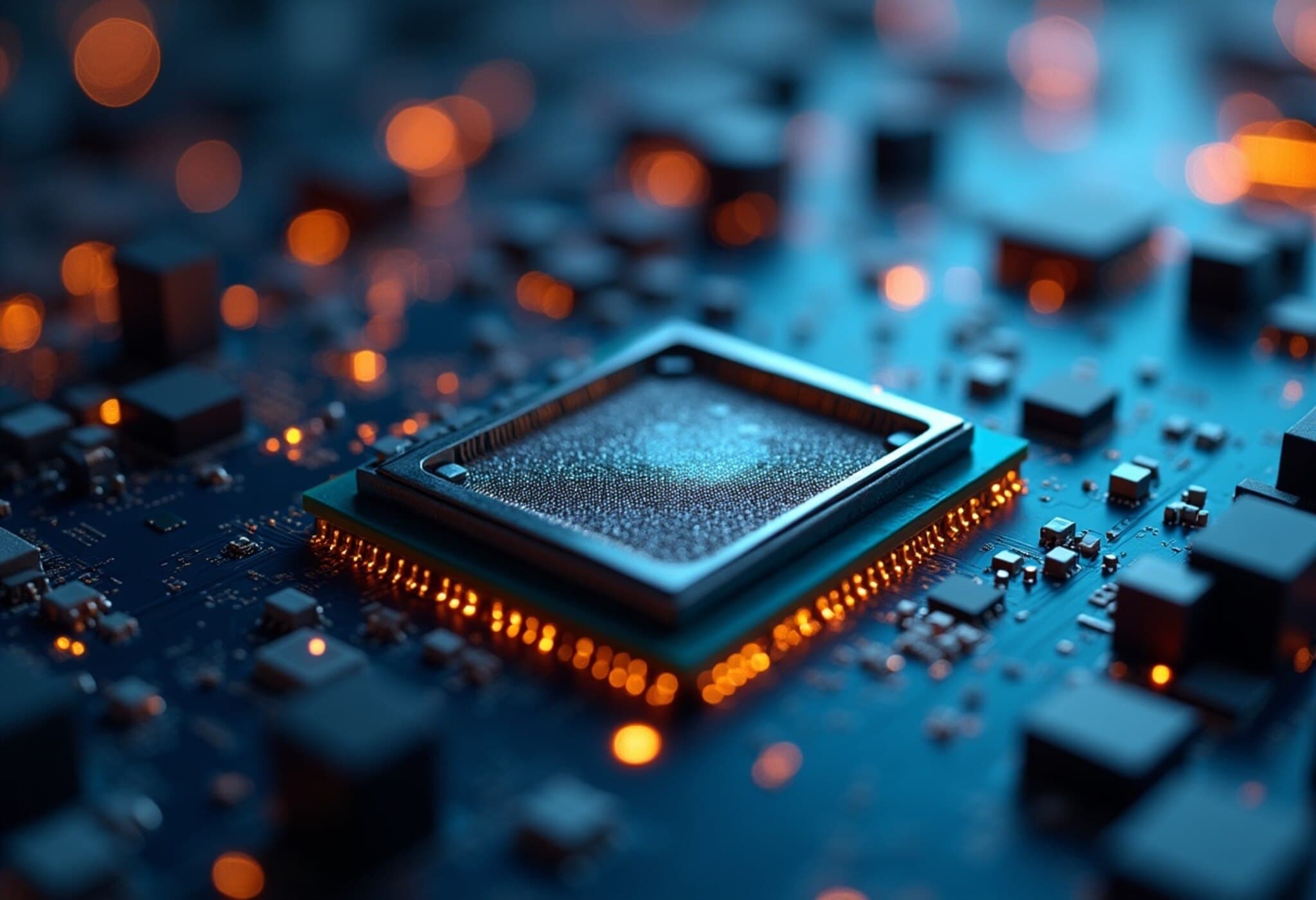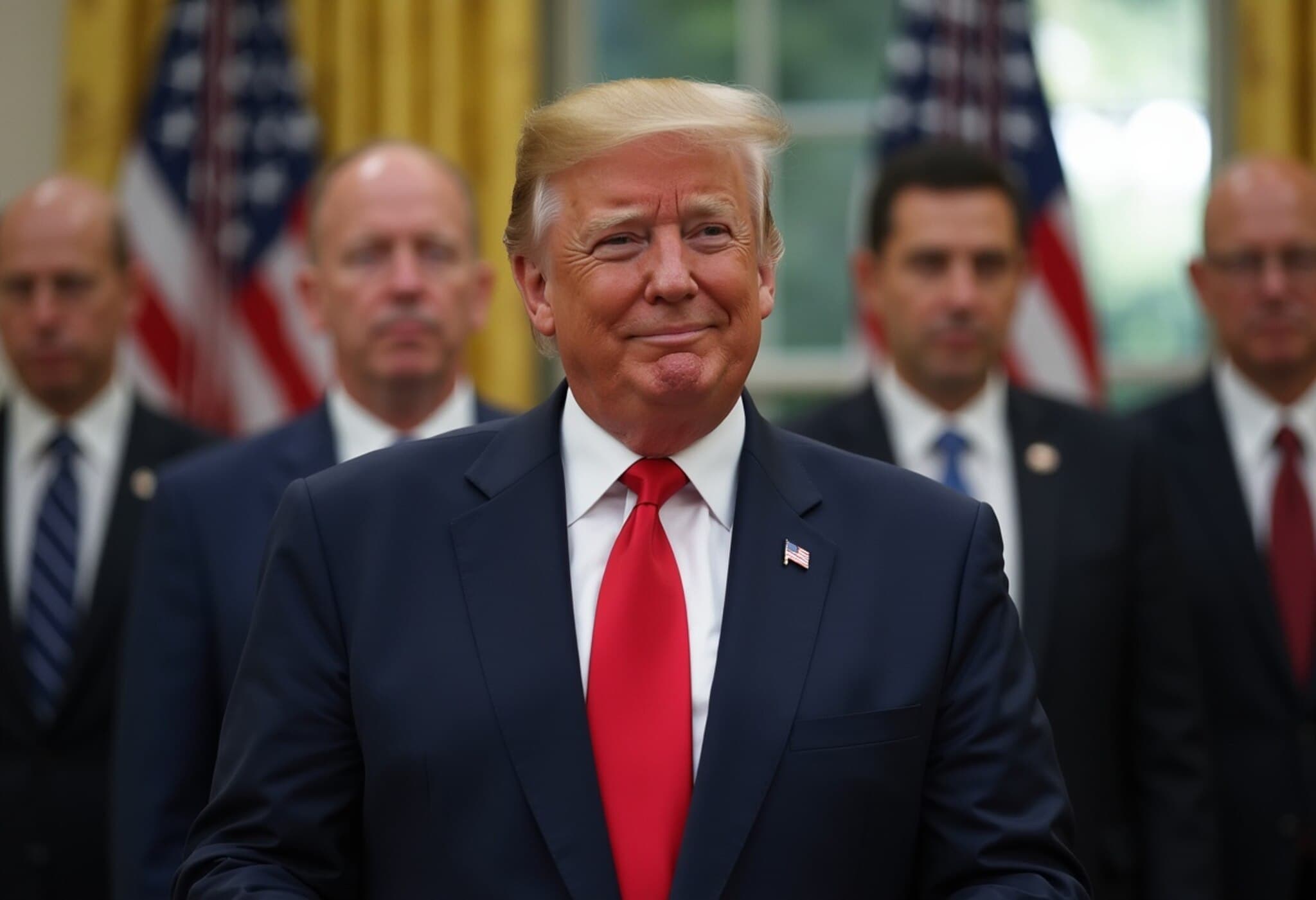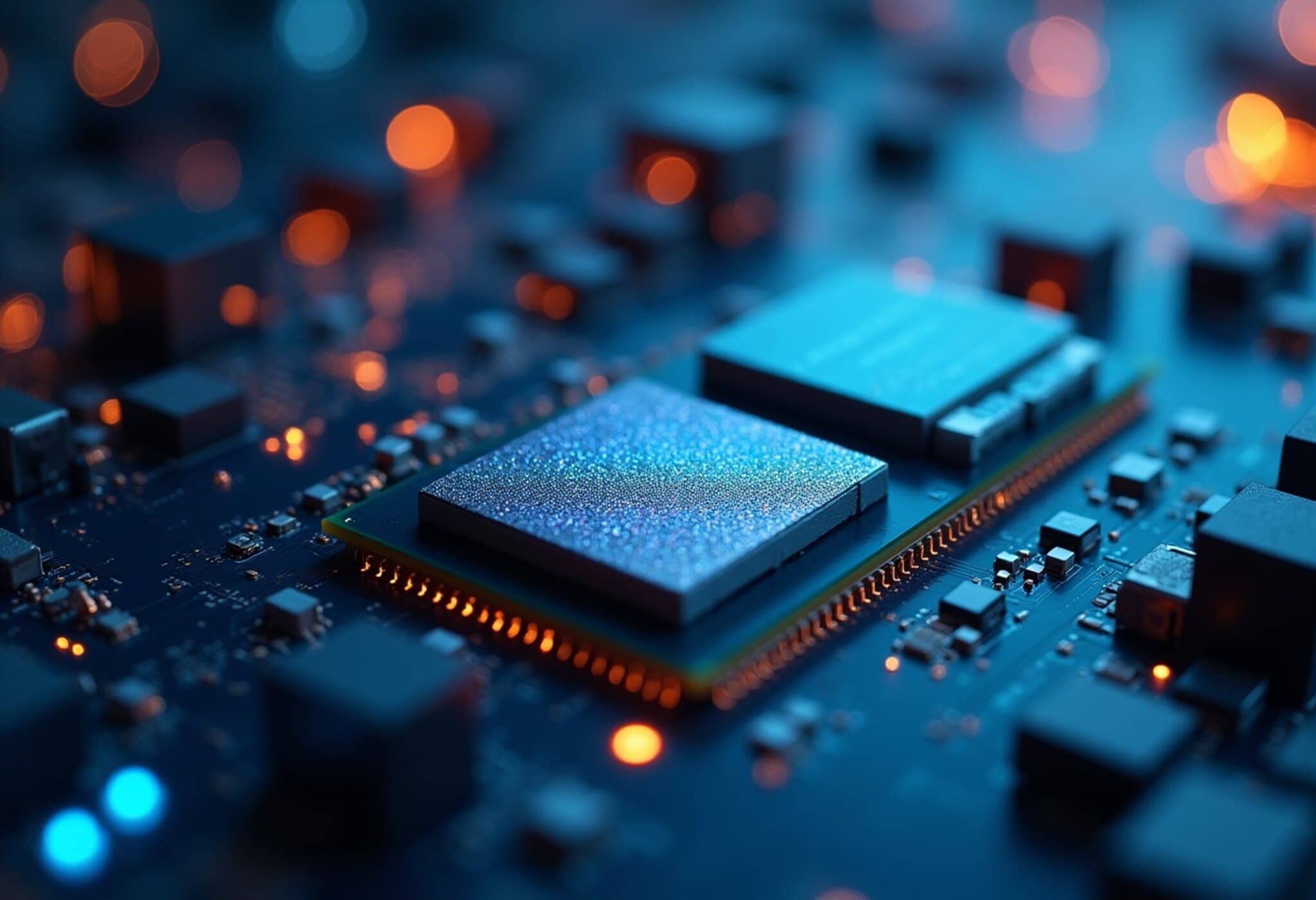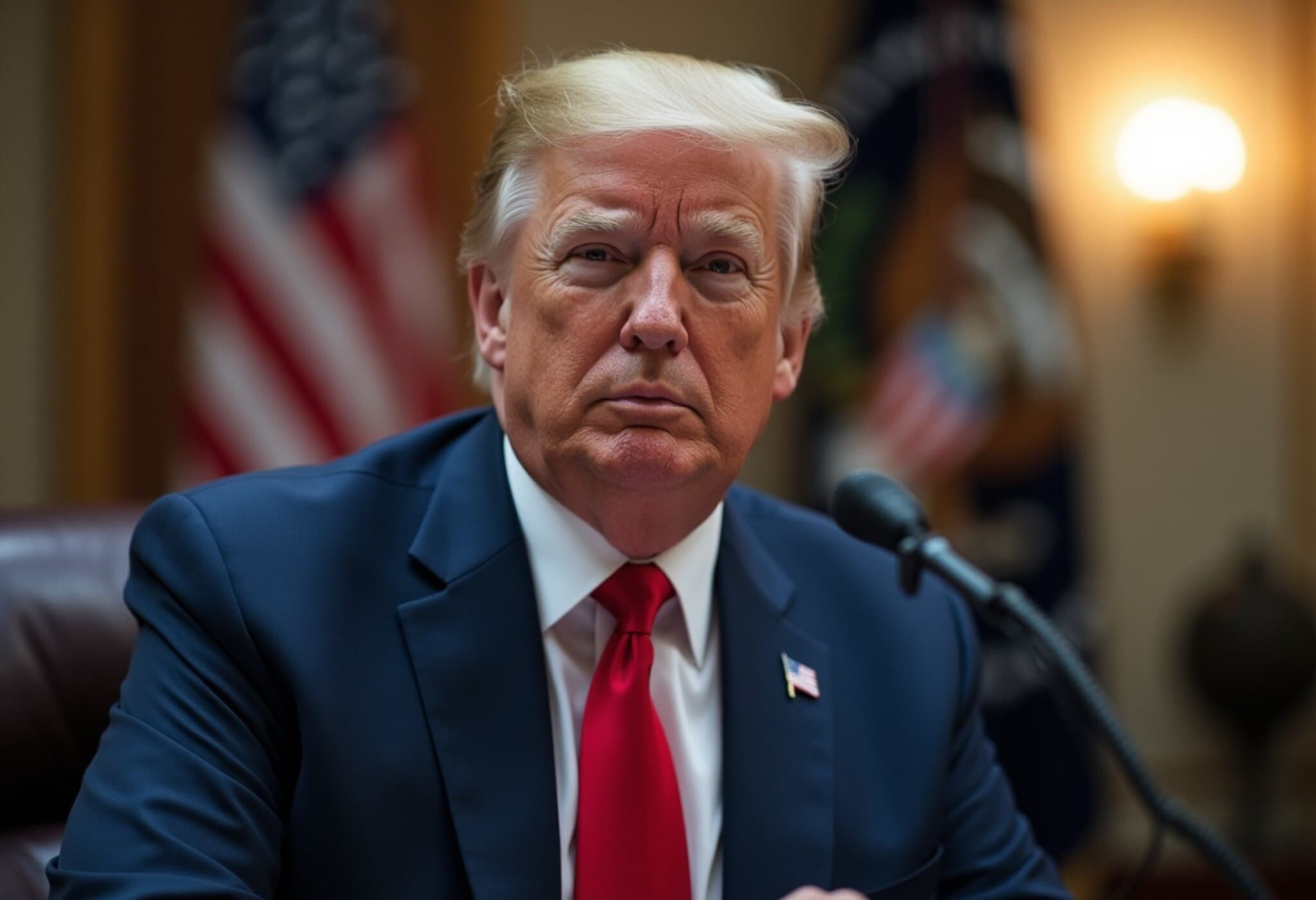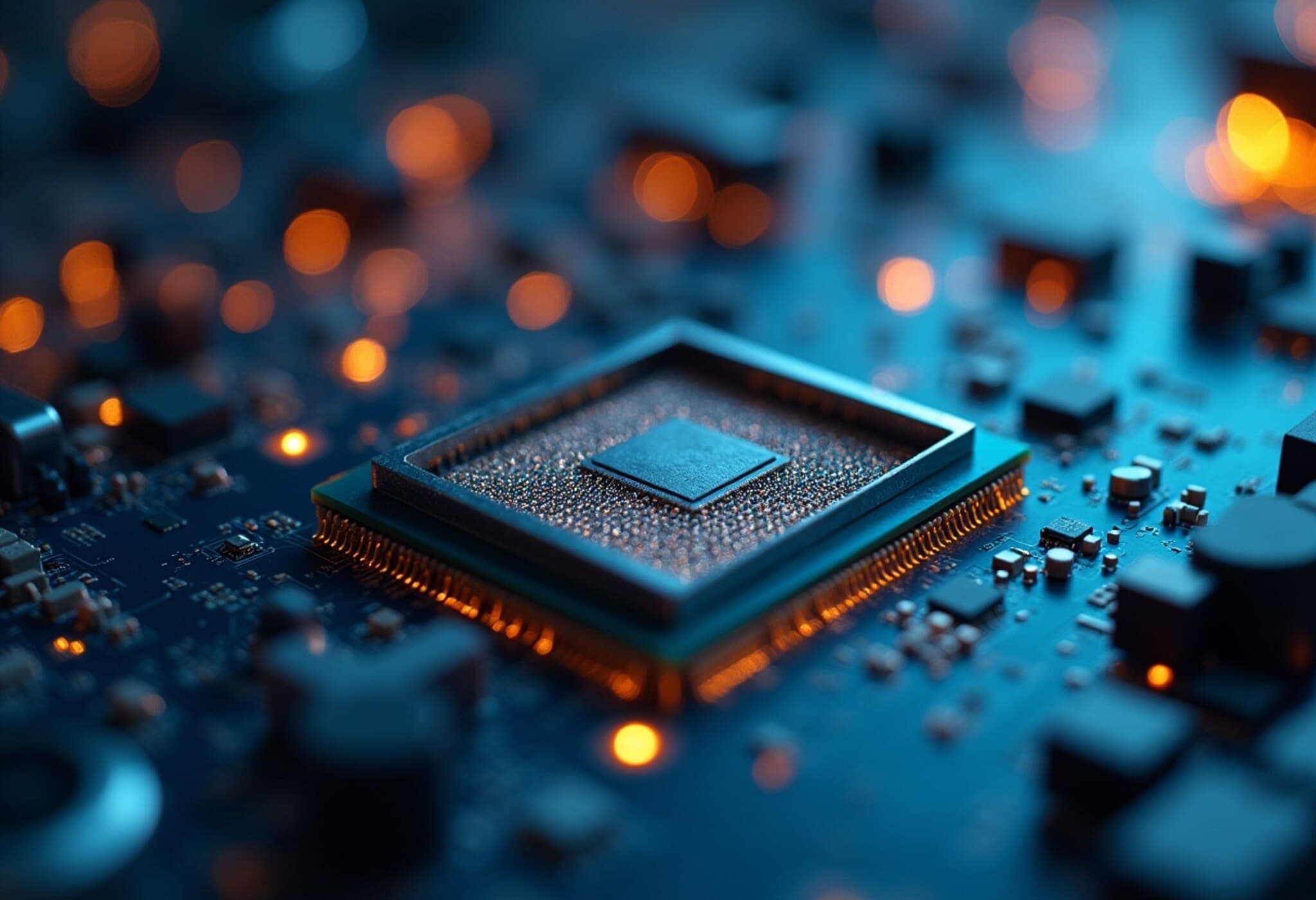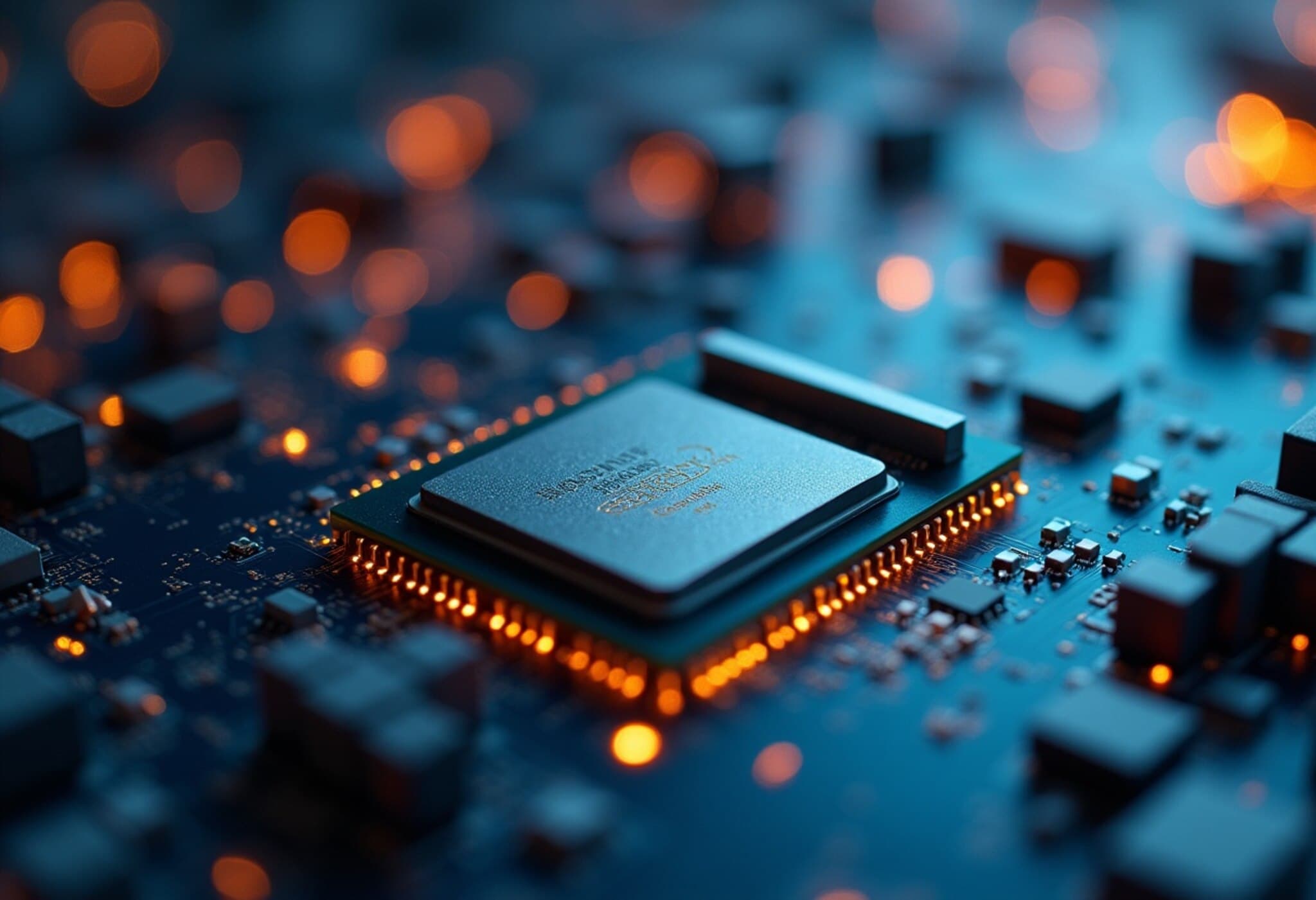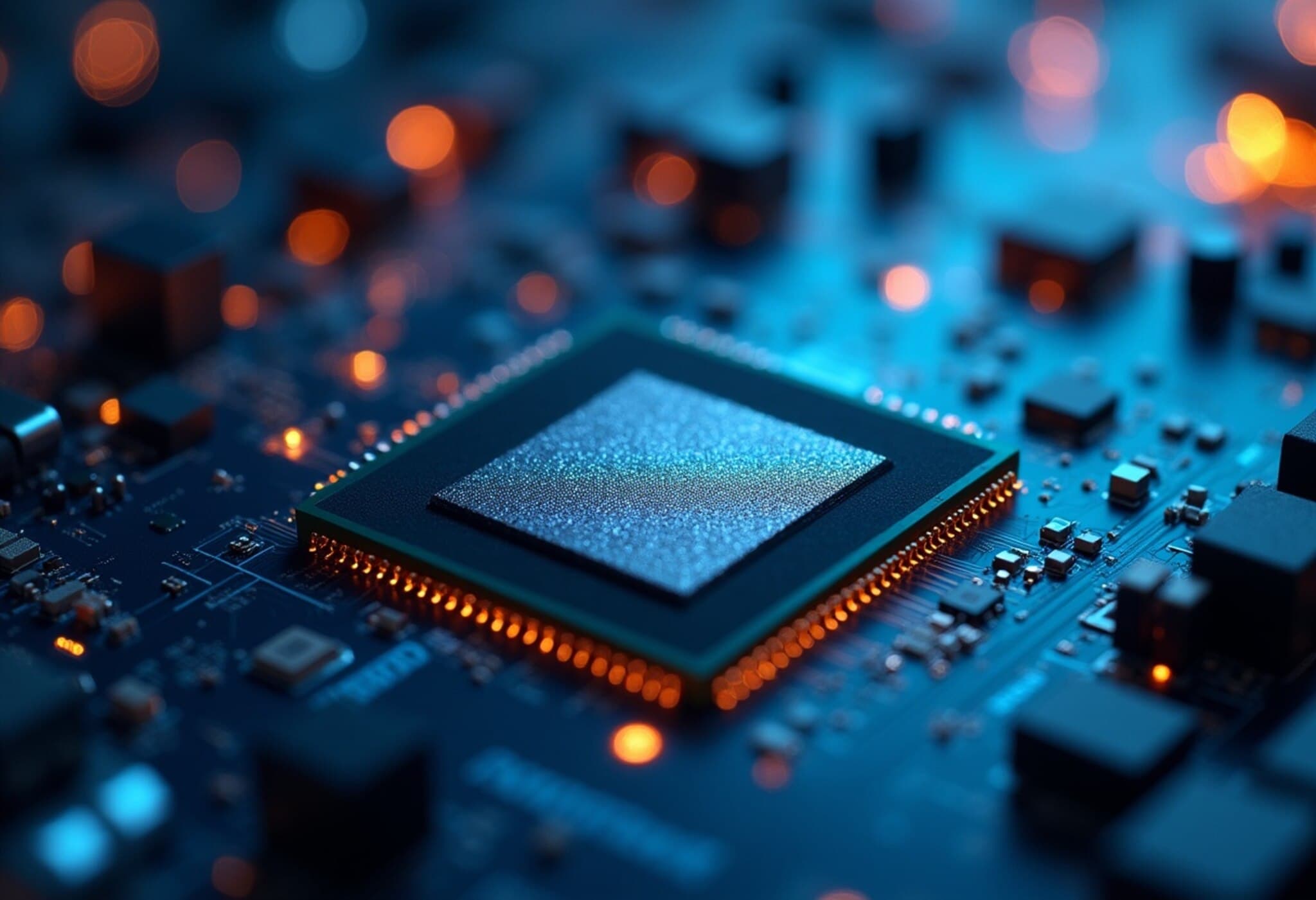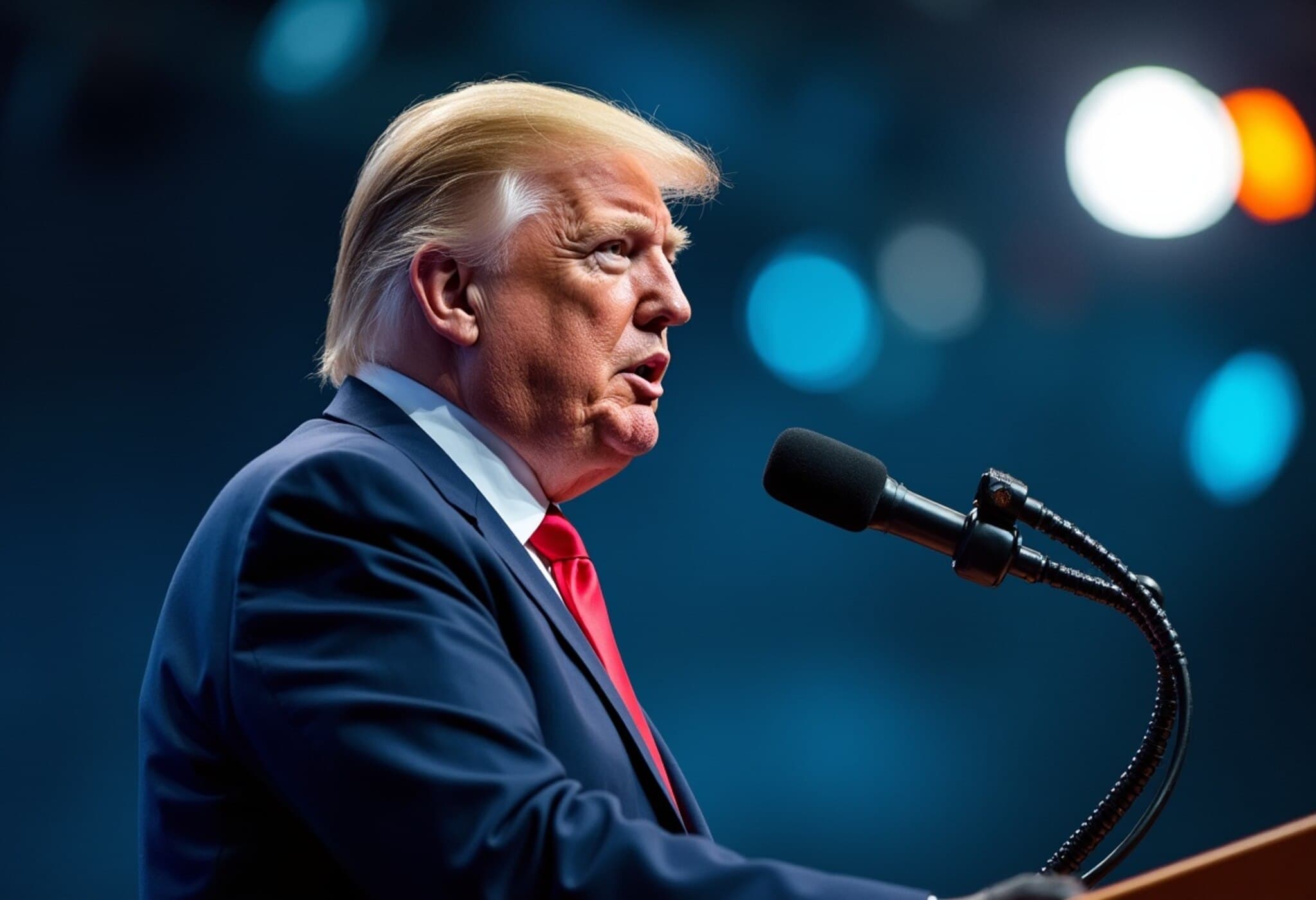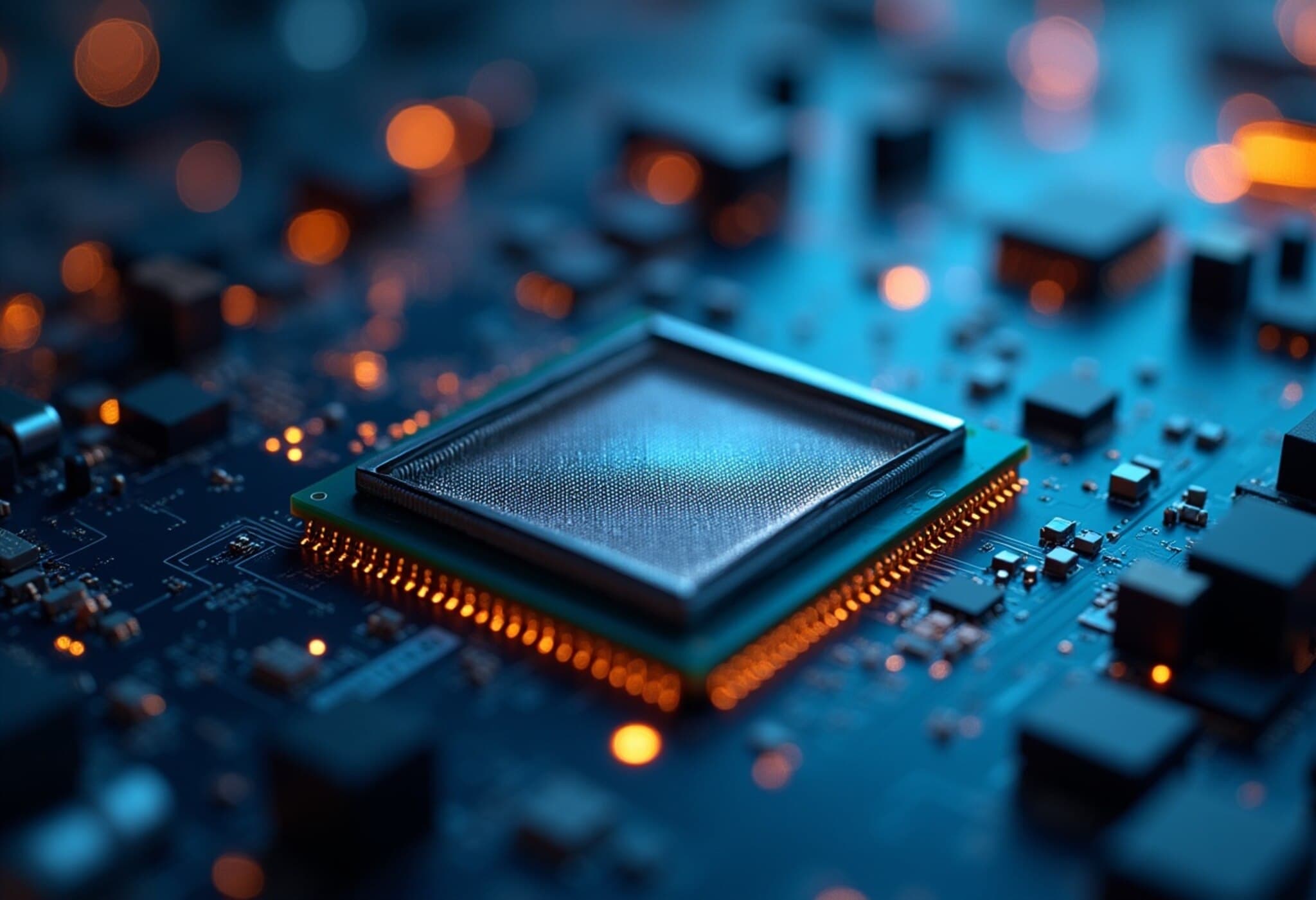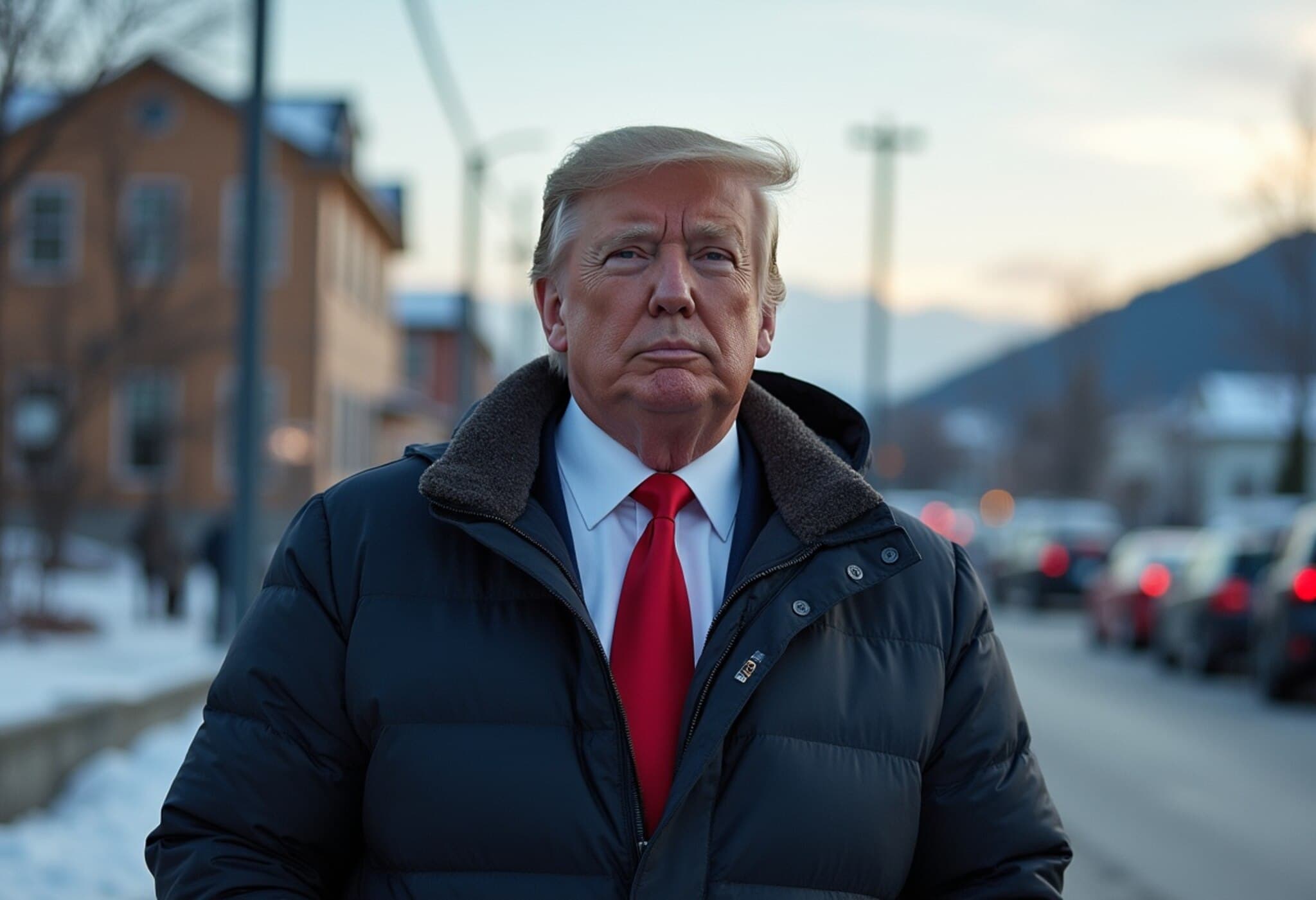Trump Administration Contemplates Taking Stake in Intel to Boost U.S. Chip Manufacturing
In a bold move that blurs the line between politics and business, the Trump administration is reportedly considering acquiring a stake in Intel Corporation, the quintessential American semiconductor giant. This step underlines a wider strategic push to reassert U.S. dominance in the global chip industry, especially as geopolitical tensions and supply chain disruptions highlight the critical importance of onshore manufacturing.
Intel, the only major U.S.-born company capable of producing cutting-edge microchips domestically, witnessed a stock surge of 7.4% following Bloomberg's report. Unlike foreign players such as Taiwan Semiconductor Manufacturing Company (TSMC) and Samsung—both leaders in manufacturing ultra-advanced 3-nanometer chips with facilities in the U.S.—Intel holds a unique position of national pride and supply chain sovereignty.
Looming U.S. Tech Sovereignty Challenges
While firms like TSMC and Samsung have extended their manufacturing footprint into America, their roots in Taiwan and South Korea, respectively, complicate the nationalistic narrative that's increasingly shaping U.S. industrial policy. The Trump administration's interest in Intel consolidates efforts to underpin domestic production, crucial for both economic security and national defense.
This initiative forms part of a broader ecosystem effort, as evidenced by recent moves requiring Nvidia and AMD to pay levies on chip sales to China, signaling Washington’s tightening grip on semiconductor supply chains amid escalating U.S.-China tensions.
Economic Signals: Inflation Picks Up and Market Jitters Remain
Adding to the complex economic backdrop, U.S. wholesale prices increased by 0.4% in July, surpassing expectations and marking the highest monthly rise since 2022. The year-on-year inflation reading hit 3.3%, the highest since February. These figures intensify the debate within the Federal Reserve about the trajectory of interest rates.
Potential Fed Leadership Advocates for Aggressive Rate Cut
David Zervos, Jefferies’ chief market strategist and a potential candidate for Fed chair, argues that despite reaccelerating inflation pressures indicated by wholesale prices, the Fed should pivot towards cutting its “restrictive” policy stance more aggressively. This viewpoint challenges the conventional wisdom urging caution amid inflation concerns, suggesting instead that stronger stimulus may be needed to support growth.
Markets Hovering on a Knife’s Edge
Wall Street showed muted reaction overall, with the S&P 500 gaining a mere 0.03%—essentially flatlining Thursday’s trading session. Across the Atlantic, the pan-European STOXX index saw modest gains, buoyed in part by the strong showing of defense stocks ahead of the upcoming Trump-Putin summit. Meanwhile, the U.K. economy delivered a surprisingly resilient growth figure, outperforming forecasts and offering some relief to Brexit-related economic uncertainties.
Geopolitical Chess: Trump-Putin Summit Raises Stakes for European Defense
Regardless of the summit’s outcomes regarding Ukraine, analysts anticipate an uptick in demand for European defense stocks. The meeting between former President Trump and Russian President Putin in Alaska is widely viewed not just as a diplomatic engagement but also as a signal of shifting global power dynamics. Experts warn that while Putin’s reputation in the West remains contentious, his seasoned approach could challenge the less experienced Trump, who reportedly is not taken seriously by Russia’s leader.
Expert Insight: Navigating the Intersection of Politics, Technology, and Markets
This intermingling of government influence and tech industry strategy is reminiscent of historic industrial policies but is more complex today, given the globalized nature of supply chains and geopolitical rivalries. The Trump administration’s move to intertwine politics and commerce through a potential stake in Intel raises important questions about the future of U.S. tech sovereignty:
- How will government ownership or partial control impact Intel’s agility and innovation competitiveness?
- What might this signal to foreign investors and trade partners about U.S. economic nationalism?
- Could this model set a precedent for future state involvement in critical technological sectors?
For investors and policymakers alike, understanding these dynamics will be vital as markets navigate an era defined by both rapid technological change and increasing geopolitical uncertainty.
Editor's Note
The Trump administration’s interest in Intel underscores a pivotal juncture where geopolitics and technology collide, redefining the rules of global economic competition. While bolstering domestic chip production aligns with U.S. strategic interests, the long-term effects on innovation, global relations, and market dynamics remain to be seen. As inflation pressures persist and the Fed debates policy direction, watch closely how these developments influence both Wall Street and Washington’s industrial agenda in the months ahead.

